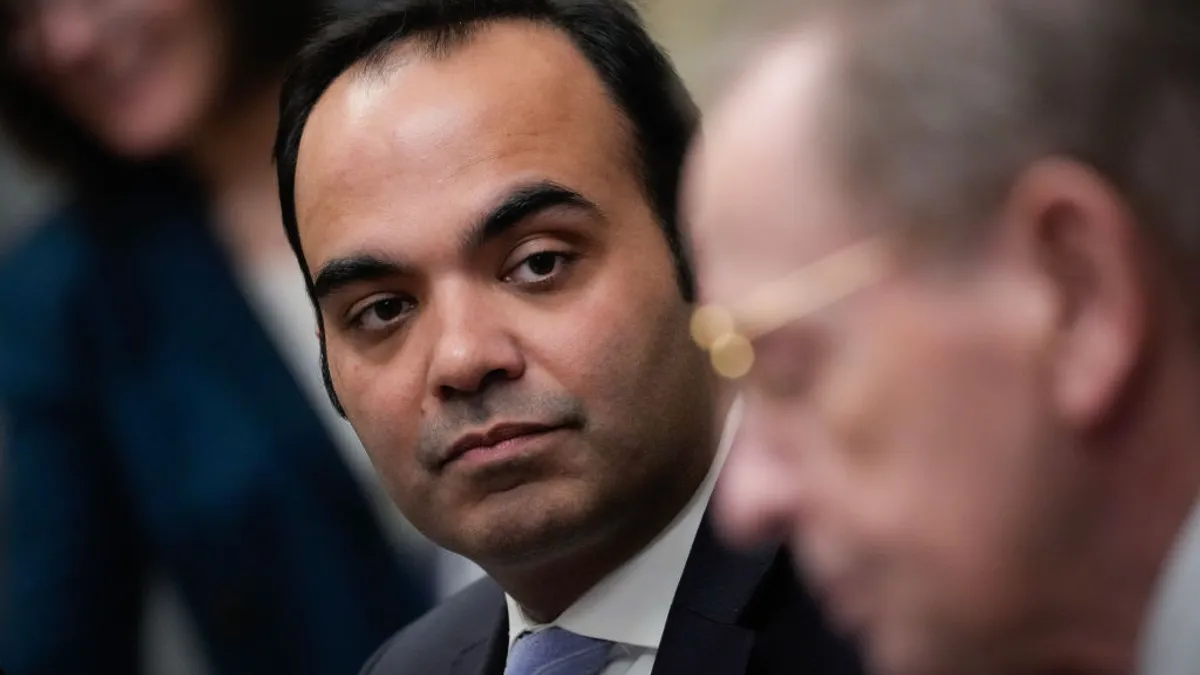The Consumer Financial Protection Bureau is facing ire from several trade groups and banks for allegedly exceeding its regulatory authority with its newly inked overdraft cap rule.
The new rule, which caps overdraft fees at $5 for banks with $10 billion or more in assets, “ignores thoughtful industry and stakeholder feedback, and will harm the very consumers the CFPB claims to protect” American Bankers Association CEO and President Rob Nichols said in a press release on the lawsuit Friday.
The $5 cap is one of three choices banks and credit unions have under the new rule. They also have the option to set a fee that’s equal to their costs and losses from offering overdraft protection or continue charging overdraft fees at current rates as long as they give customers notifications like those associated with credit cards.
The ABA filed the lawsuit in Mississippi federal court alongside the Mississippi Bankers Association, Consumer Bankers Association and America’s Credit Unions, as well as Arkansas-based Arvest Bank, Mississippi-based Bank of Franklin and Mississippi-based The Commercial Bank.
“Overdraft services provide consumers with essential liquidity that can be the difference between putting food on the table or putting it back on the grocery store shelf,” said MBA President and CEO Gordon Fellows in a prepared statement. “The CFPB’s new rule is a clear overreach of the bureau’s authority, and if allowed to stand it will result in Mississippians losing access to the liquidity that overdraft services provide.”
“We worry that the loss of these services will push many economically vulnerable Mississippians into less safe and more costly non-bank products,” Fellows said.
Plaintiffs allege that the CFPB rule improperly relies on the 1968 Truth in Lending Act, which applies to disclosure obligations related to credit products. But the TILA doesn’t support the new overdraft rule because overdraft products don’t qualify as “credit,” plaintiffs allege.
“Moreover, the CFPB far exceeds the disclosure-related scope of TILA by imposing price caps and significant substantive restrictions on the terms under which these services can be offered,” plaintiffs contend, according to court documents.
CFPB spokesperson Allison Preiss defended the rule Monday, calling it “common sense and long overdue.”
“[I]t’s unclear why big banks are scared to be transparent with their customers about the interest rate they’re charging on overdraft loans,” she said via email to Banking Dive.
The agency estimates the rule, set to take effect Oct. 1, 2025, will save consumers a collective $5 billion a year.
Overdraft fees have garnered much attention under the Biden administration, but trade groups said last year that categorizing overdraft fees as “junk fees” is conflating fees lenders use to extend credit with fees other sectors levy on consumers, such as internet and resort fees.
Overdraft fees on average ticked up slightly this year to $27.08, up from $26.61 in 2023, according to Bankrate. The increase follows a two-year decline. While some banks – including Ally Financial, Capital One and Citi – have abandoned overdraft fees in recent years, others like Bank of America have significantly reduced them.
Still, 94% of banks continue to charge overdraft fees, Bankrate found.














